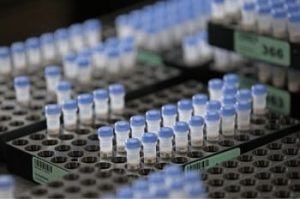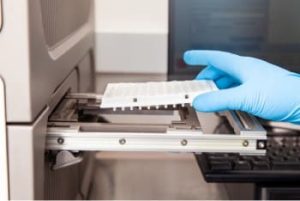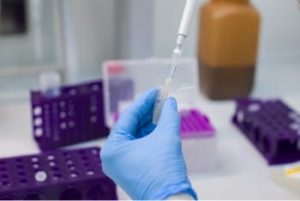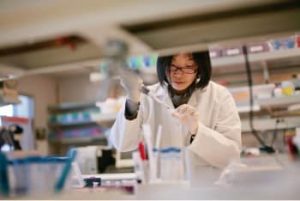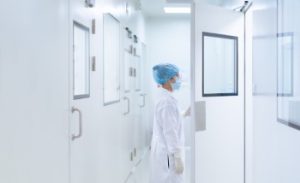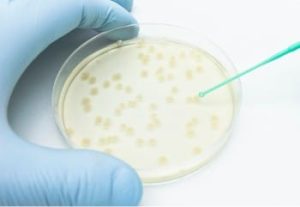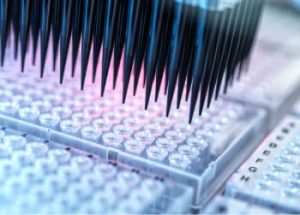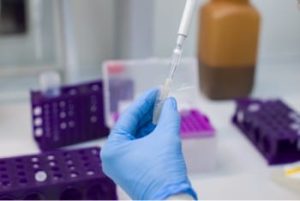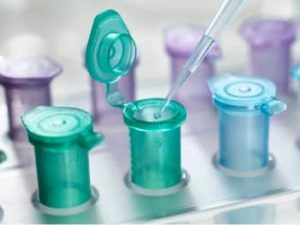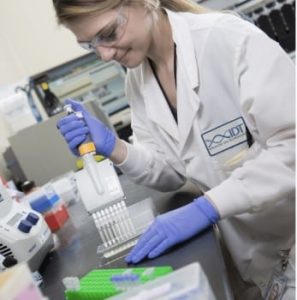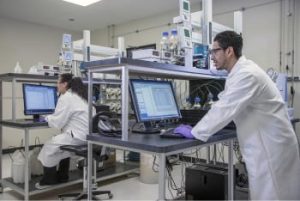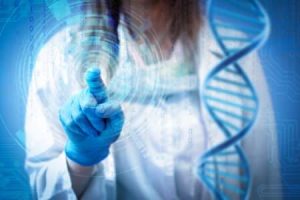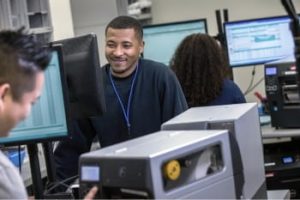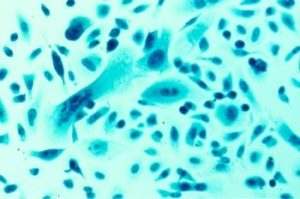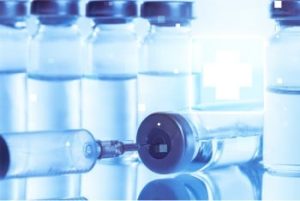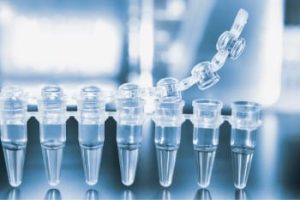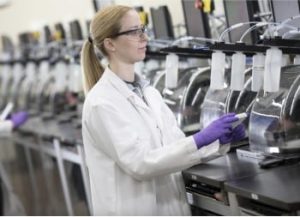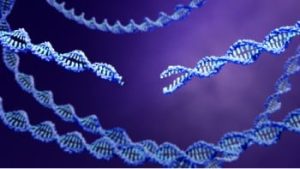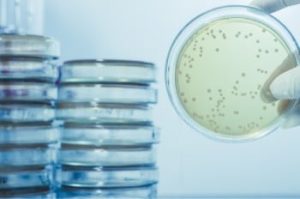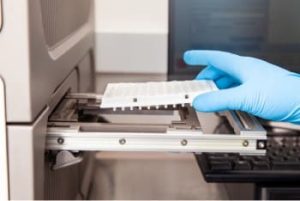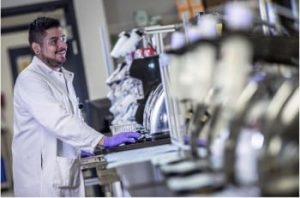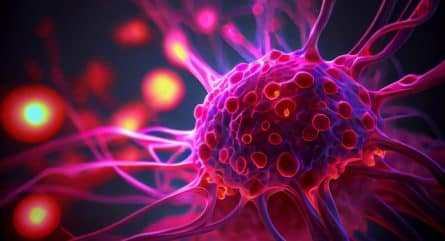 Ashley Dvorak is based near IDT headquarters in North Liberty, Iowa. She previously served in NGS product development and as a research scientist; she has been with the company since 2007. She helped bring NGS technologies to IDT several years ago and now helps customers with their own NGS workflows. Dvorak has a bachelor’s degree in biochemistry and molecular biology from Cornell College in Mount Vernon, Iowa. She recently talked about her role at IDT.
Ashley Dvorak is based near IDT headquarters in North Liberty, Iowa. She previously served in NGS product development and as a research scientist; she has been with the company since 2007. She helped bring NGS technologies to IDT several years ago and now helps customers with their own NGS workflows. Dvorak has a bachelor’s degree in biochemistry and molecular biology from Cornell College in Mount Vernon, Iowa. She recently talked about her role at IDT.
What does a field application manager do?
The majority of what I do as a field application manager (FAM) is centered around technical customer support. One of the major responsibilities of the role is being in the field with customers, working alongside them in the lab and helping them set up NGS technology like target enrichment or NGS library prep solutions. That includes running through experiments from the very front end of what we support in the workflow—library prep and adapters. We are often on site preparing a sample with DNA that they already have, and then that sample would be captured with our lockdown probes or Discovery Pools—whichever target enrichment technology the customer is using.
I take them through the entire workflow or process up through the quality control (QC) step. After QC, the sample is ready to be sequenced and that's usually where Illumina’s support comes in. We give a lot of guidance as to how to do the sequencing, but IDT’s products only support the workflow up until that point. During our time in the customer's lab we go over the technical details of the workflow and the product, sharing specifics about its purpose and how it works. We like to show slides to illustrate a process, which makes it easier for the customers to understand when you walk them through what’s happening step by step.
We also go through some form of analysis with the customer. Again, analysis isn’t something that we have a specific product for, but the other FAMs and I serve as subject matter experts—we're very knowledgeable when it comes to analysis of the sequencing results. What we like to do is go over with customers what they should expect performance-wise from our products and give them as little or as much detail as they want. For the ones who are really interested in understanding what to look for or how to understand if their experiment was a success, we will go through that kind of thing with them, too.
How often do you do these types of site visits?
Generally, I do one to two site visits like this per month.
And then do you continue to communicate with that team afterward?
Yes, absolutely. There’s a pre- and post-sale technical support aspect to our role. That includes supporting customers from the first research and comparison steps until the end, where we're actually implementing the assay on site. And we support them afterwards, too.
Do you find that a lot of teams have similar questions?
There are a lot of technical, specific questions. The level of experience our customers have varies quite a bit. I've been on site with customers who don't have as much experience with NGS, they just know that their boss told them to do this and they're trying to follow directions. Those people need more direction and real day-to-day support, but there are some that hardly need you on site at all. They've probably been through another vendor’s capture protocol or they're very familiar with NGS and the technology and they have really experienced bench hands. You can tell that they really prepared for the visit, they read the protocol over and over and they can pretty much do it without any assistance. So those types of visits you're pretty much just standing there watching them go through the protocol, giving them some tips and pointers on technique, answering any questions that they have. The skill sets really vary.
What was your lab experience prior to this role?
I started at IDT about 13 years ago as part of the molecular biology R & D group, where I spent six years. During my last year in R & D we brought in NGS technology. I spent a week on site at Washington University in their NGS lab going through experiments and sequencing instrument setups, and when I came back to IDT I was able to install that here. What we realized shortly after that was that we needed more than R & D—we actually needed a dedicated product development group, because we had all these ideas about doing good research but we really didn't have a way to get all of those ideas out to the customers or the researchers. To do that, we spun off a part of our R & D team into a product development group. For two and a half or three years I was in that product development group, and that was specific to NGS and this was still bench work. I was working on developing our Lockdown™ product line during that time and then my role just slowly started to progress. I was getting asked a lot of questions by the sales team and being put in touch with customers quite frequently, and my role naturally changed into more of a support position for the products that I was developing until we officially started a field applications group. Chad Locklear was the one who actually started this group four years ago, and I was the first member on it, basically filling this need that our customers had for extra support, because NGS is such a technical field.
Where did you go to school and what did you study?
I went to Cornell College in Mount Vernon, Iowa. It’s a small, private school and I studied biochemistry and molecular biology.
Was IDT your first role out of school?
Yes! It has been my only job since college. I did get to actually live in California for a few months while I was helping open our R & D site out there and it was nice to get the chance to live somewhere else.
Have you had experiences out in the field assisting a customer in the lab that gave you new ideas for R & D or product adjustments?
Yep, absolutely. You know, customers are always really curious about trying things in different ways. Because the role is so technically focused, they know that they're talking to somebody who has experience with development and the technical side of things, someone who has a scientific-bench mind.
Do you know if other companies have similar roles to yours? Do other companies do this field work in the same way?
Yes, other companies have it, though the roles may be structured a bit differently than ours. We usually give the customer the option to go through the workflow themselves the first time. Nine times out of 10 they want to do that themselves, so they have the hands-on experience, right? That's what I suggest, anyway, because you can listen to somebody do something and you can watch it, but until you have that hands-on experience, it's hard to pick up a technique. You retain it better when you do it yourself. That's true about a lot of things, and there are a lot of things that you don't think about when you're just watching somebody else do it. It's a better learning tool.

